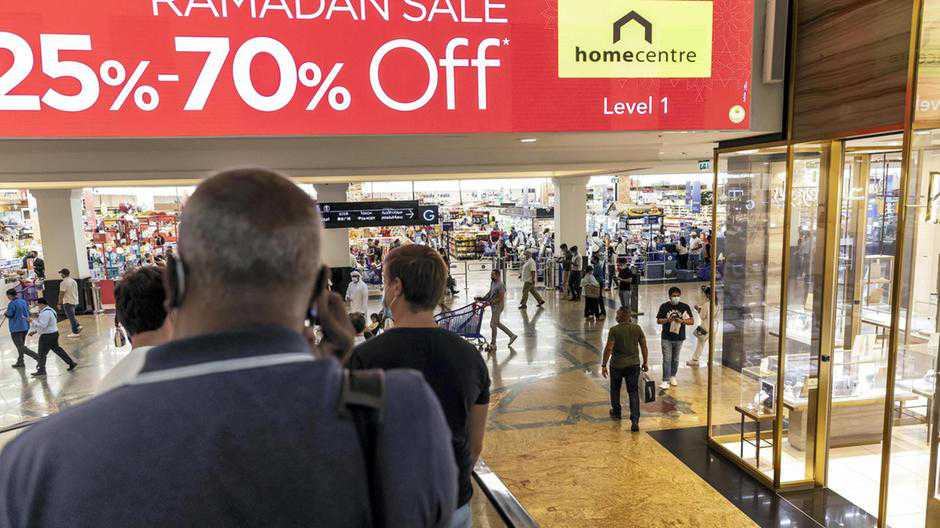UAE's retail industry nearing pre-pandemic levels, Middle East's biggest mall operator says
16 June, 2021

The UAE's retail economy is "inching towards pre-pandemic levels" as customer confidence returned over the last 90 days of 2020 and the first 90 days of this year, based on the Majid Al Futtaim.
Shelling out for fashion items had already reached pre-Covid-19 levels by March this season, per month when consumer spending by residents rose 17 % month-on-month, the business said in its State of the UAE Retail Economy report.
Majid Al Futtaim, which owns Mall of the Emirates, said visitor numbers in its retail establishments are picking up.
"On footfall, we are almost back again to 2019 levels. On sales, using categories we are before 2019; in other categories it is ramping up well," Majid Al Futtaim's leader Alain Bejjani said of his own company's performance.
"We are seeing that growth in sales is overtaking growth in footfall," Mr Bejjani told The National.
"People are going to the malls and are being more purposeful with their visits. And we are seeing the visitation numbers increasing as well. So we are almost there."
The retail economy slumped 40 per cent at the height of movement restrictions in April last year when malls were closed. Nonetheless it recovered strongly in the second half and by December sales were only 2 % lower than in the corresponding period a year earlier, the report showed. The figures were predicated on point-of-sale data from its stores and from third parties, the company said.
Though spending dipped again in January by 6 % and 12 % in February following a strong holiday trading period, the upsurge in March meant retail spending was up 9 % year-on-year and just 3 per cent below March 2019 levels.
Some people have been more reticent to come back to malls and the protective measures put in place are a reminder "of what's happening around you", Mr Bejjani said, but shoppers have grown to be more comfortable with being in public areas as the vaccination roll out has increased, he said.
More than half of UAE residents surveyed for the report believe there will still be a solid rebound from last year's pandemic-induced slump, the business said, citing a February report from Oxford Economics.
"We feel the economy will probably confirm itself even further as the entire year passes by," Mr Bejjani said.
"We've seen risks which have been mitigated relatively well."
Tourists are also returning, albeit in "measured" numbers, as the sector depends as much on the actions of foreign governments as the UAE's, Mr Bejjani said.
"People are confident arriving at the UAE and Dubai," he said. "We're seeing that with hotel occupancy, we're since with the retail side," he added. "With Expo within the last quarter, I think we will be in relatively good shape."
Consumer spending in the UAE is forecast to grow 3 per cent this year to $146 billion, before picking right up pace to a compound total annual average rate of 4.3 % over the next five years to $175bn, according to Euromonitor International.
Digital spending is playing a significant role in this. E-commerce penetration rates have doubled their 2019 levels, with overall online spending in February this season 30 % higher year-on-year. Up to 25 per cent of most electrical items are now bought online, and 8 % of grocery and 7 to 9 per cent of fashion items, the report said.
"I think this pace will be sustained in the years ahead," Mr Bejjani said, adding that retailers have had to intensify their online operations and become better at fulfilment and delivery.
This shift will also continue steadily to change the retail space, he argued, with larger brands such as for example Apple making stores less about transactions that can easily be completed online and more about providing a better brand experience.
"Our role as landlords, as mall operators is to supply [brands] with the very best space possible [and] the very best footfall possible" not only in conditions of volume but also the sort of customers that brands are targeting, he said.
Spending in the leisure and entertainment sector continues to be considerably lower than in the pre-Covid era, however. In March 2021, the leisure market was 52 per cent less than in the same month in 2019, "but the underlying trend was upwards" after a month-on-month gain of 17 per cent between February and March.
Source: www.thenationalnews.com
